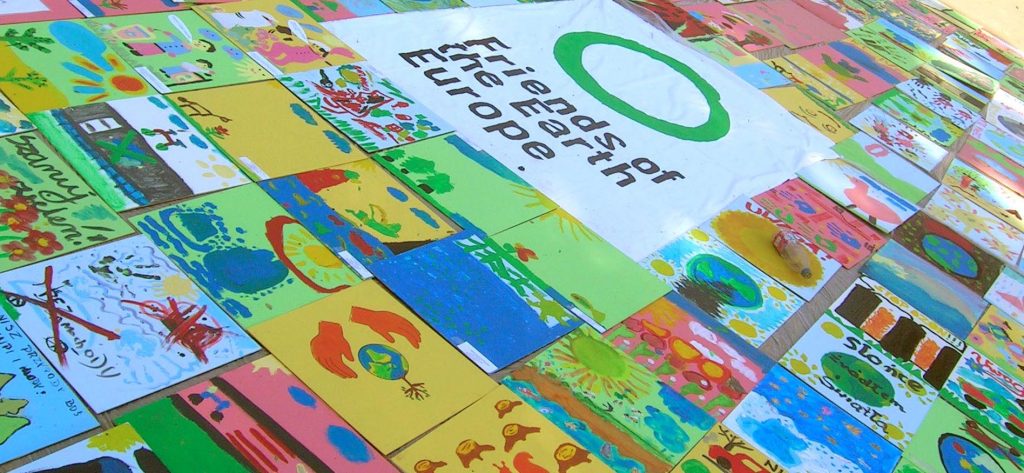Copenhagen/Brussels – The European Union must make stronger commitments to fighting climate change to increase the chance of achieving a just and effective global climate agreement, Friends of the Earth Europe said today as vital United Nations climate talks opened in Copenhagen.
Pledges made so far by developed countries fall far short of what science says is needed for the world to stand a decent chance of avoiding the worst consequences of climate change. The positions of rich countries arriving at the negotiations, including Europe, also make the chances of reaching an agreement which delivers climate justice extremely slim.
Europe has made an inadequate 20% emission reduction target for 2020.
Its promise to increase this to a 30% target dependant on other parties’ commitments is also far below what is needed, especially as it includes huge amounts of offsetting which does not deliver real cuts in emissions.
European governments have failed to decide what financial contribution
they will make to support developing countries to mitigate their emissions and adapt to the consequences of climate change.
Sonja Meister, climate campaign coordinator for Friends of the Earth Europe, said: “Europe must up its commitment and agree to at least 40% emissions reductions by 2020. Cuts of 40% have been proven to be feasible and affordable – Europe has no more excuses for not living up to its historical responsibility. Europe’s governments must make a clear commitment about how much new money they are willing to pay to developing countries to help them to tackle climate change.”
“Rich countries are responsible for the vast majority of greenhouse gases in the atmosphere today and must immediately commit to steep and legally binding reductions of their emissions. These reductions must take place without offsetting and without other false solutions such as agrofuels, nuclear energy or so-called ‘clean coal’,” said Friends of the Earth International chair Nnimmo Bassey from Nigeria.
Friends of the Earth Europe demands that in Copenhagen the EU must:
– commit to at least 40% domestic emission reductions by 2020 compared to 1990 levels, without offsetting. The Clean Development Mechanism (CDM) should be abolished as it deters the structural changes necessary in Europe to green the economy and deliver emission reductions. The majority of CDM projects do not deliver real emission cuts and many have devastating social and environmental consequences in the global South.
– deliver its fair share of the finances needed by developing countries for mitigation, technology and adaptation. This needs to be new, public money additional to existing development aid. The money must be administered by the UNFCCC in a central fund. Any funding outside of the UN, including the World Bank’s climate investment funds, and any financial transfers made as part of offsetting schemes should not count as fulfilment of developed country commitments.
– commit to a legally binding UN agreement and a continuation of the Kyoto Protocols which obliges developed countries to make further commitments on cutting emissions and provide finance and technology to developing countries. Attempts to derail the Kyoto Protocol must be stopped.
– keep forests out of carbon markets. Existing forests should be protected by halting deforestation, forest degradation and the conversion of forests into plantations. Any agreement on deforestation should be a rights-based approach and should not include carbon markets or plantations.
– ensure that the next commitment period of the Kyoto Protocol has a strong compliance regime that ensures that emissions in industrialised countries go down year by year. Too many parties, including a series of EU member states, have so far failed to deliver their commitments under the Kyoto Protocol. The urgency of climate change requires emission cuts to be delivered within short timeframes.
Friends of the Earth International is also mobilising thousands of activists during the talks to show world leaders the strength of demands
for them to reach a strong and fair agreement to tackle climate change.
The Flood for Climate Justice organised by Friends of the Earth International will take place on 12 December will see thousands of people flood the streets of Copenhagen.
NOTES
A new study published by Friends of the Earth Europe and Stockholm Environment Institute on December 1 proves for the first time that Europe could achieve at least 40% domestic emissions reductions by 2020 without resorting to false solutions like agrofuels, nuclear or carbon capture and storage.
The full report ‘Europe’s Share of the Climate Challenge: Domestic Actions and International Obligations to Protect the Planet’ is available at: www.foeeurope.org and www.sei-international.org/climateshareeurope






